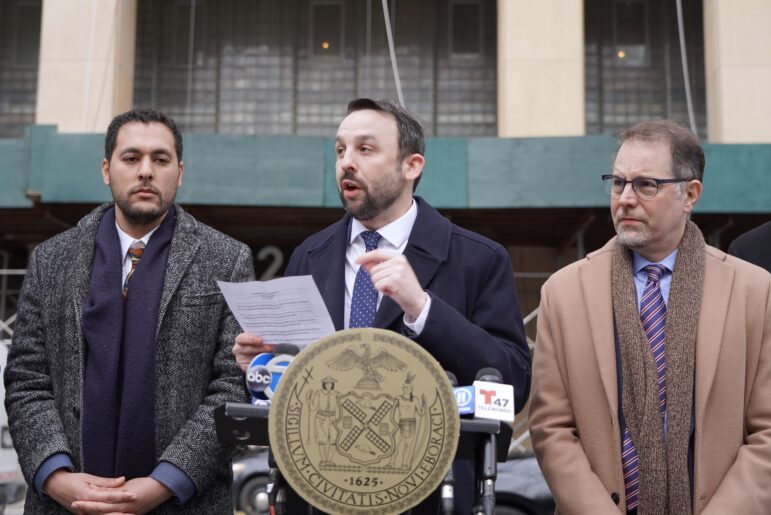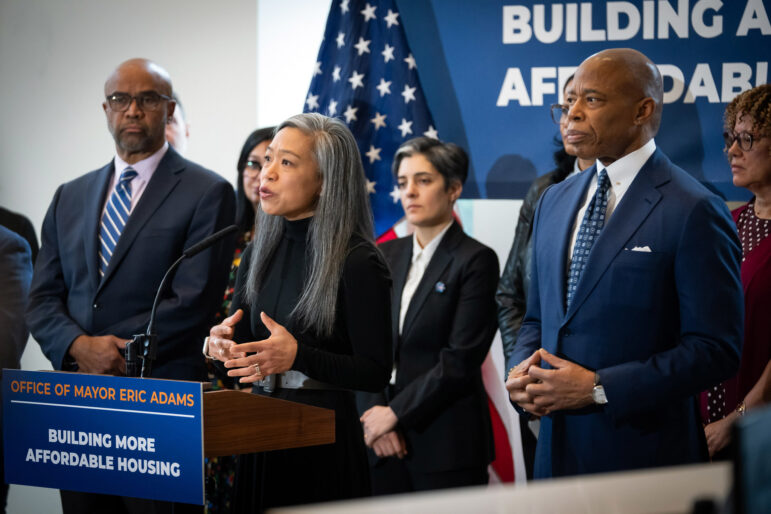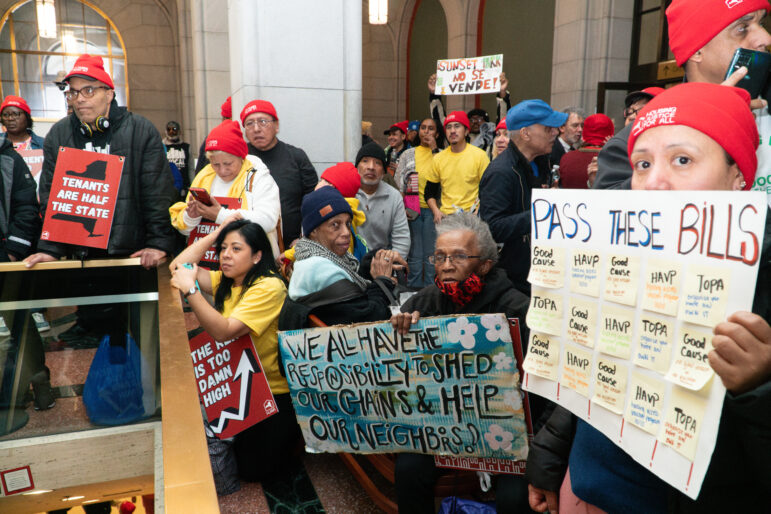Protesters marched outside the Real Estate Board of New York’s Manhattan headquarters Thursday, while others blocked foot traffic in an act of civil disobedience. The NYPD arrested 13 people, including the city’s Public Advocate, Jumaane Williams.
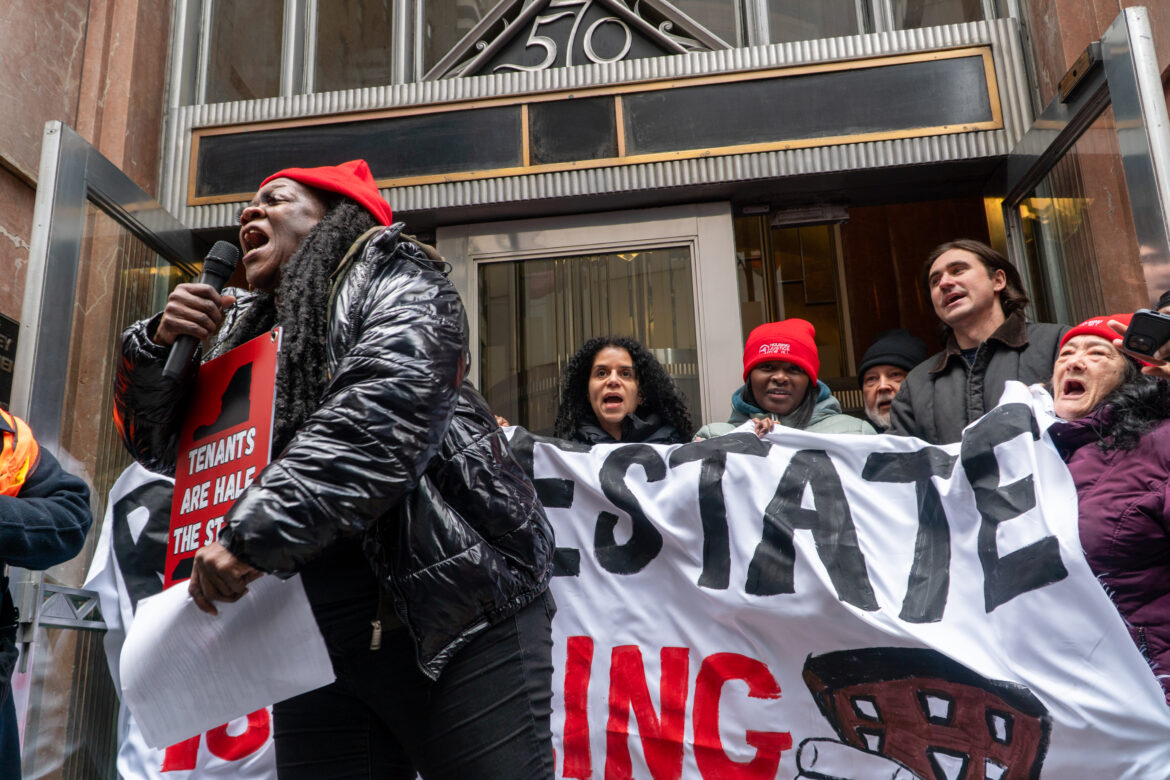
Chris Janaro
Renette Bradley, a member of HOPE Tenant Union from Brooklyn, speaking outside REBNY headquarters on Thursday.Three days after the state budget deadline, over 200 tenants and their advocates marched to the Manhattan headquarters of the Real Estate Board of New York (REBNY), protesting the powerful lobby group for its negotiating role in a housing deal they fear could expand protections for some tenants at the expense of others.
Protesters marched outside the building entrance Thursday and gave speeches while others blocked foot traffic in an act of civil disobedience. The NYPD arrested 13 people, including the city’s Public Advocate, Jumaane Williams.
“We don’t want anything rolled back!” Williams told the crowd. “We want more, and we deserve more!”
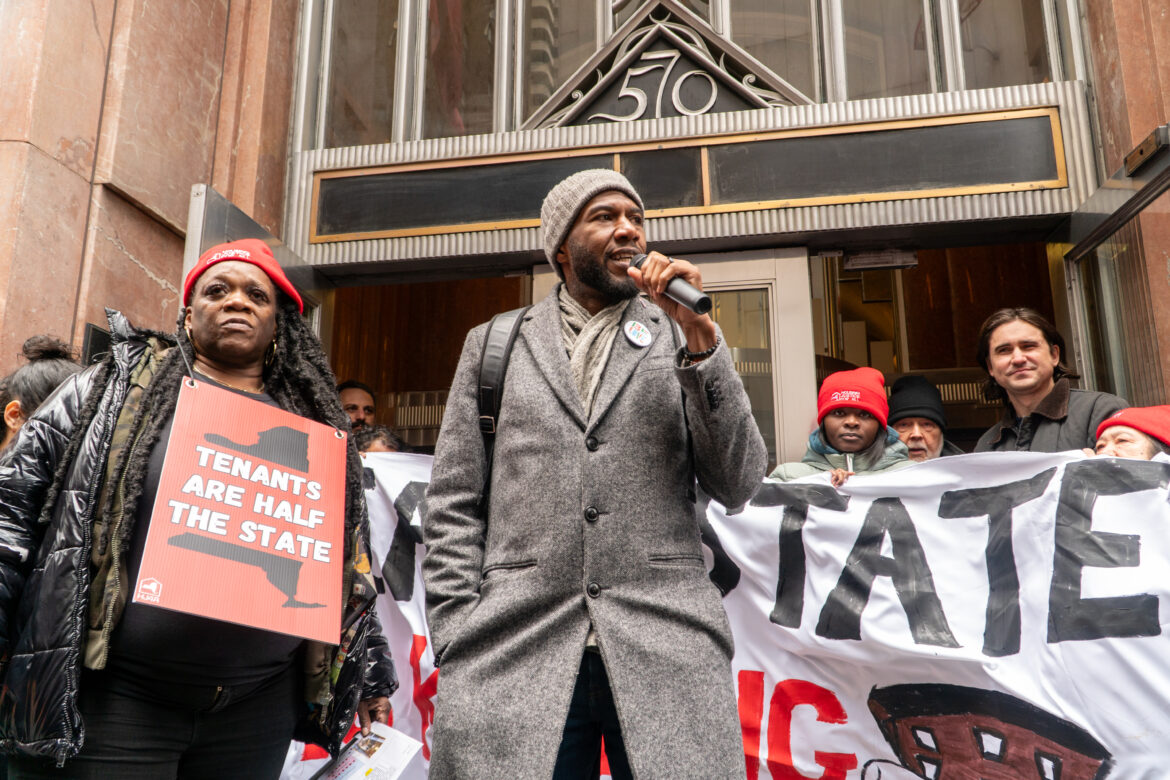
Chris Janaro
NYC Public Advocate Jumaane Williams, above, was among those arrested while protesting Thursday.
Up in Albany, Gov. Kathy Hochul, state legislators, labor unions, and real estate groups appear determined to reach a state budget deal that includes housing incentives such as a new tax break for New York City developers. Lawmakers have extended the budget deadline through at least Monday.
“There’s a lot of factors at play here, and I will tell you, bringing them together, to be close to a resolution is something I think a lot of people couldn’t have foreseen,” Hochul told reporters Thursday.
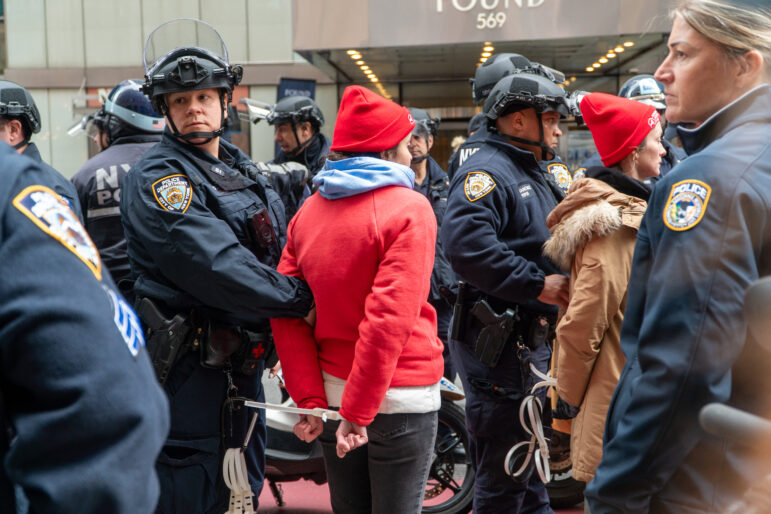
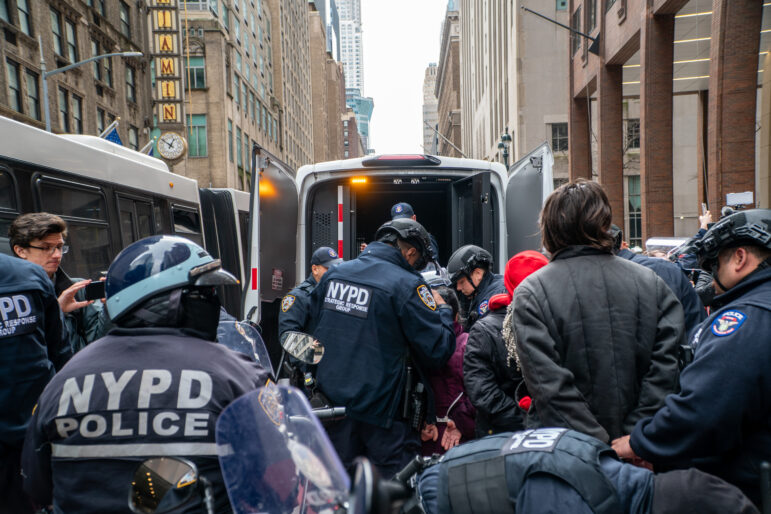
Police arrested 13 protestors at Thursday’s event (Photos by Chris Janaro)
However, tenant advocates are concerned that some of the proposals coming from developers would roll back hard-fought wins for rent stabilized residents and water down progressives’ statewide Good Cause bill, which would give tenants in unregulated housing a new defense against eviction so long as they keep up with rent and comply with their leases. It would also help tenants challenge large rent increases.
One major point of concern is negotiations to curtail the 2019 Housing Stability and Tenant Protection Act (HSTPA), which made it difficult for landlords to make drastic rent increases in between tenancies in rent stabilized apartments—removing the main incentive for landlords to pressure families out of their homes, supporters say.
Landlords, on the other hand, argue they are unable to afford to repair vacant apartments without those rent increases, leading to stabilized units being kept off the market.
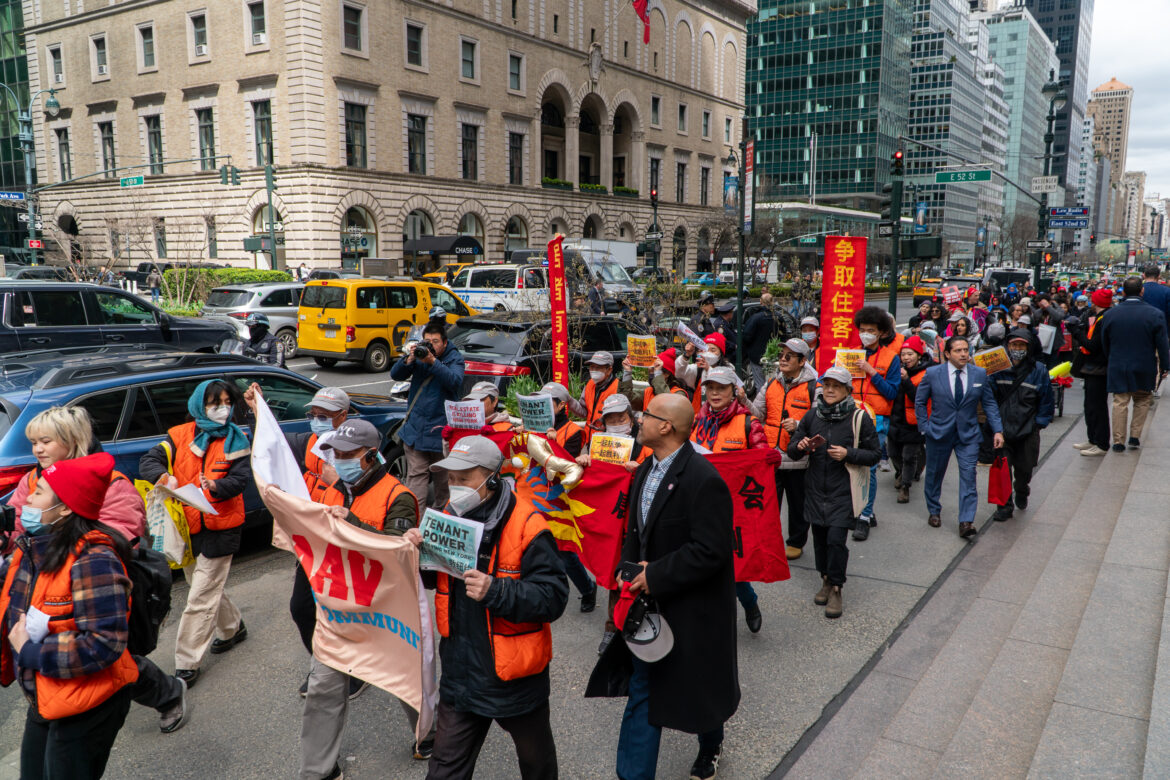
Chris Janaro
Roughly 200 tenants and housing activists marched to REBNY’s Manhattan headquarters.The scope of this issue has been hotly debated. There were about 26,300 rent stabilized apartments both vacant and unavailable for rent in 2023, according to the latest Housing Vacancy Survey (HVS). But its authors have drilled down to a smaller number they say is most relevant—1,730 units renting for $1,500 or less that have been held off the market for a year or more.
Jay Martin is executive director of the Community Housing Improvement Program (CHIP), a trade organization for rent stabilized property owners that has lobbied for legislation that would allow for rent increases upon vacancy following a tenancy of at least 10 years.
But on Friday, he acknowledged that there seems to be more interest in increasing the value of renovations that can contribute to a rent increase, known as Individual Apartment Improvements (IAIs). The current cap is $15,000 over 15 years, a percentage of which can be passed on to the tenant.
“They opened the door a little bit for some IAI changes, and that honestly changed the conversation quite a bit in a way, I’ll be honest, I wasn’t expecting,” Martin said.
John Leyva, a longtime Brooklyn tenant, attended Thursday’s action. His rent is regulated through the federal Low-Income Housing Tax Credit program. Rollbacks to the HSTPA would be unacceptable, he said, going “back to the days when tenants were being harassed, and tenants were being displaced.”
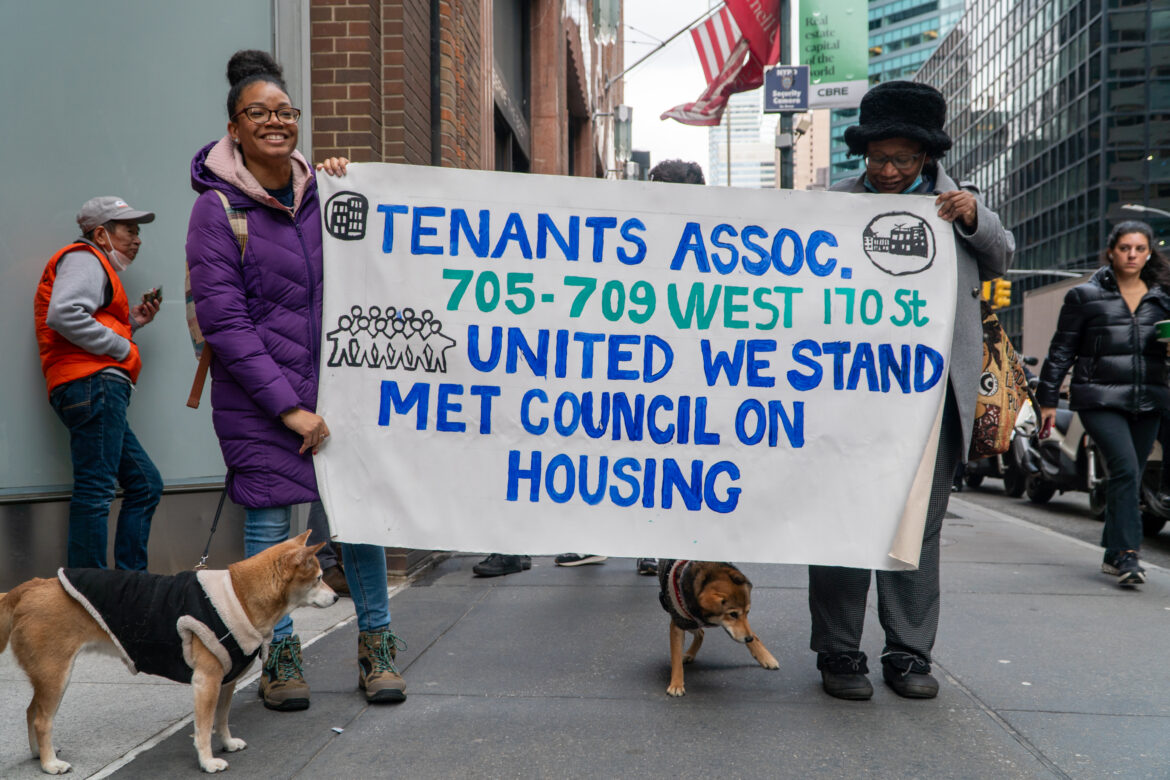
Chris Janaro
Leyva also lamented the fact that his own family can’t afford to live in the city anymore, leading to separation from his loved ones.
“My son lives in Florida now because he couldn’t live here in New York; he had a good 32BJ union job and everything,” he said. “And so my grandkids, I can only see them every once in a while instead of being able to help raise them here because of this situation. It wasn’t a job. It was just he couldn’t get housing.”
“The right to express views on important public policy matters is a bedrock of democracy,” said REBNY President James Whelan in a statement after the protest. “We remain focused on advancing policies that meaningfully address the housing crisis New Yorkers face every day.”
Mike McKee, treasurer of Tenants PAC, was among those arrested on Thursday. At 84, he has advocated for decades to protect and expand tenant protections, including for the state’s rent stabilized households, roughly 1 million of whom live in New York City.
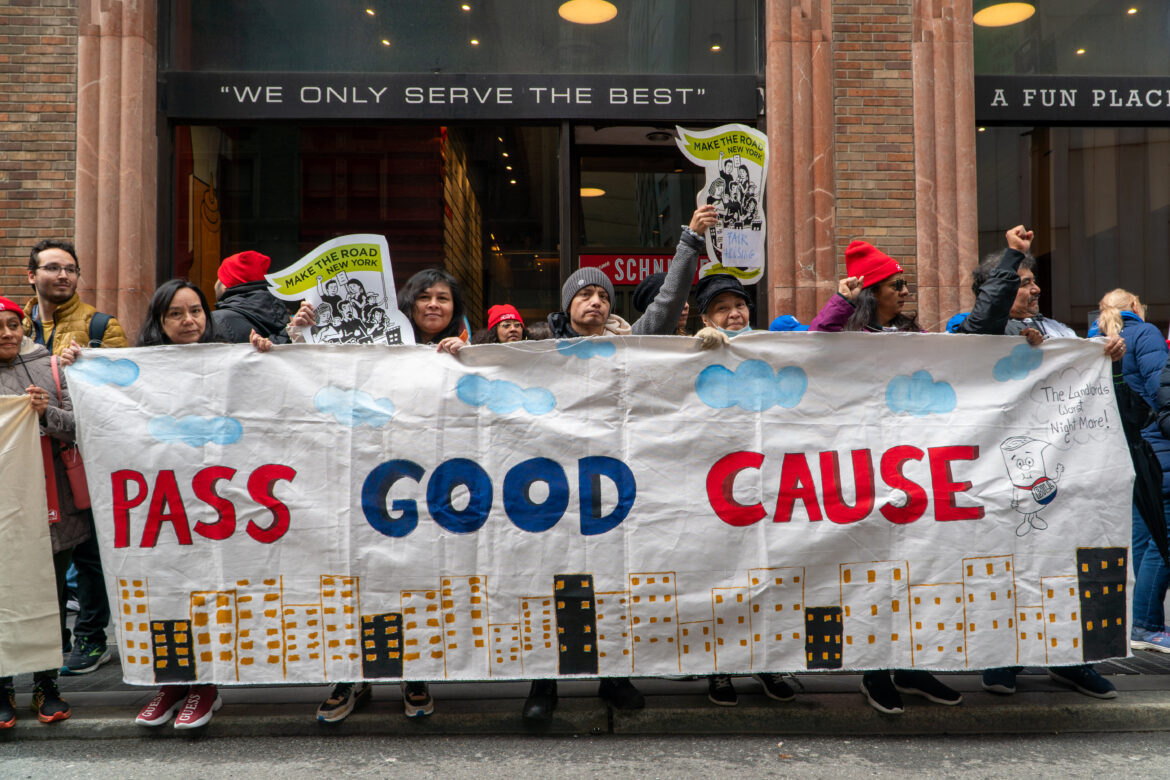
Chris Janaro
The proposed “Good Cause” bill would give tenants in unregulated housing a new defense against eviction so long as they keep up with rent and comply with their leases.The whole ordeal, from arrest to release, took about two-and-a-half hours—a blip compared to the decades McKee estimates he and others spent fighting for the passage of the HSTPA. It would all be worth it for a final deal with undiluted good cause legislation and a new housing voucher program, that also protects those 2019 gains.
“I decided to get arrested even though at this point it’s kind of physically hard for me to do this anymore,” he told City Limits Friday morning. “I’m sick and tired of the real estate lobby and REBNY basically dictating what happens with legislation and using our rent money to do it.”
To reach the reporters behind this story, contact Chris@citylimits.org or Emma@citylimits.org. To reach the editor, contact Jeanmarie@citylimits.org
Want to republish this story? Find City Limits’ reprint policy here.




